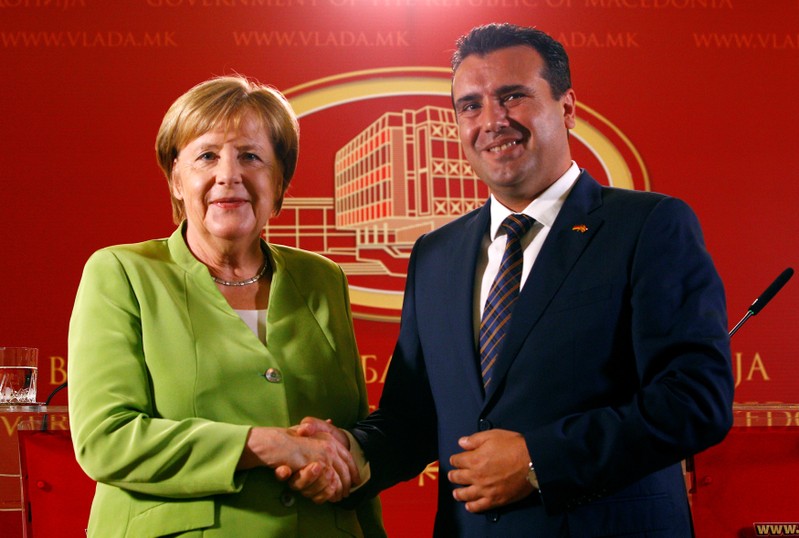
Apple Inc. said proposed U.S. tariffs on $200 billion of Chinese goods would affect its watch, wireless headphones and other products, the first time the company has detailed specific damage that could potentially hit its hardware lineup stemming from the trade battle.
The proposed tariffs of up to 25% on specific products imported from China to the U.S. would hit “a wide range of Apple products,” the company said, including its Mac mini computer, chargers, adapters, specialized manufacturing machinery and more.
Continue Reading Below
“Tariffs increase the cost of our U.S. operations, divert our resources and disadvantage Apple compared to foreign competitors,” Apple wrote in its filing with the U.S. Trade Representative. “More broadly, tariffs will lead to higher U.S. consumer prices, lower overall U.S. economic growth, and other unintended economic consequences.”
Apple declined to comment beyond its filed statement. The White House didn’t immediately reply to a request for comment.
Apple is among the most vulnerable U.S. companies amid rising trade tensions, trade experts say. The company manufactures the vast majority of its products in China and exports them to the U.S., making them potential tariff targets. It also has a sizable business in China, which the Chinese could target in retaliation for U.S. trade actions.
“The first few rounds of tariffs hit supply chains really hard,” said Mary Lovely, an economist at Syracuse University. Now, the Trump administration “has begun to hit things clearly not processed in the U.S. — consumer goods — and this is going to get people’s attention.”
The tariffs would have an impact on some of the smallest contributors to Apple’s total revenue. AirPods and the Apple Watch are part of a product segment that contributed $12.86 billion in revenue in the fiscal year ended September 2017, or 5.6% of Apple’s $229.23 billion in total sales.
Advertisement
The iPhone, which accounts for about two-thirds of Apple’s total sales, hasn’t been affected by the proposed tariffs yet. However, that could change if the Trump administration follows through with earlier threats of levies on $500 billion in imports, which would cover just about everything China exports to the U.S., trade experts say.
Chief Executive Tim Cook has played down the threat of tariffs, telling analysts in late July that Apple hadn’t been affected to date. He said Apple would provide public comment after evaluating the proposal.
Mr. Cook personally has encouraged President Trump to avoid a major trade confrontation with China, telling the president during one-on-one meetings dating back to late 2016 that it would negatively affect American companies including Apple, according to a person familiar with those meetings.
Mr. Cook has expressed optimism the U.S.-China trade situation would “get sorted out because there’s an inescapable mutuality” between the two countries. “Each country can only prosper if the other does,” he said in the summer call with analysts. “And of course, the world needs both U.S. and China to prosper, for the world to do well.”
The proposed tariffs follow 25% duties the Trump administration already has placed on $50 billion in goods from China, aimed at putting a stop to what the White House has said is China’s theft of U.S. intellectual property, the forced transfer of American technology and cyberattacks on U.S. computer networks.
In its filing, Apple challenged that approach, writing that “it is difficult to see how tariffs that hurt U.S. companies and U.S. consumers will advance the Government’s objectives with respect to China’s technology policies.”
The public comment period on the new tariffs ended Thursday, the last step before a decision.
Apple was among several tech companies to submit comments regarding the proposed tariffs. Intel Inc., Cisco Systems Inc. and others argued in their filings that the tariffs could hamper U.S. competitiveness in 5G, an emerging wireless technology the White House has set up as critical to national security.
Write to Tripp Mickle at Tripp.Mickle@wsj.com and Jay Greene at Jay.Greene@wsj.com
(END) Dow Jones Newswires
September 08, 2018 02:32 ET (06:32 GMT)
Copyright (c) 2018 Dow Jones & Company, Inc.


